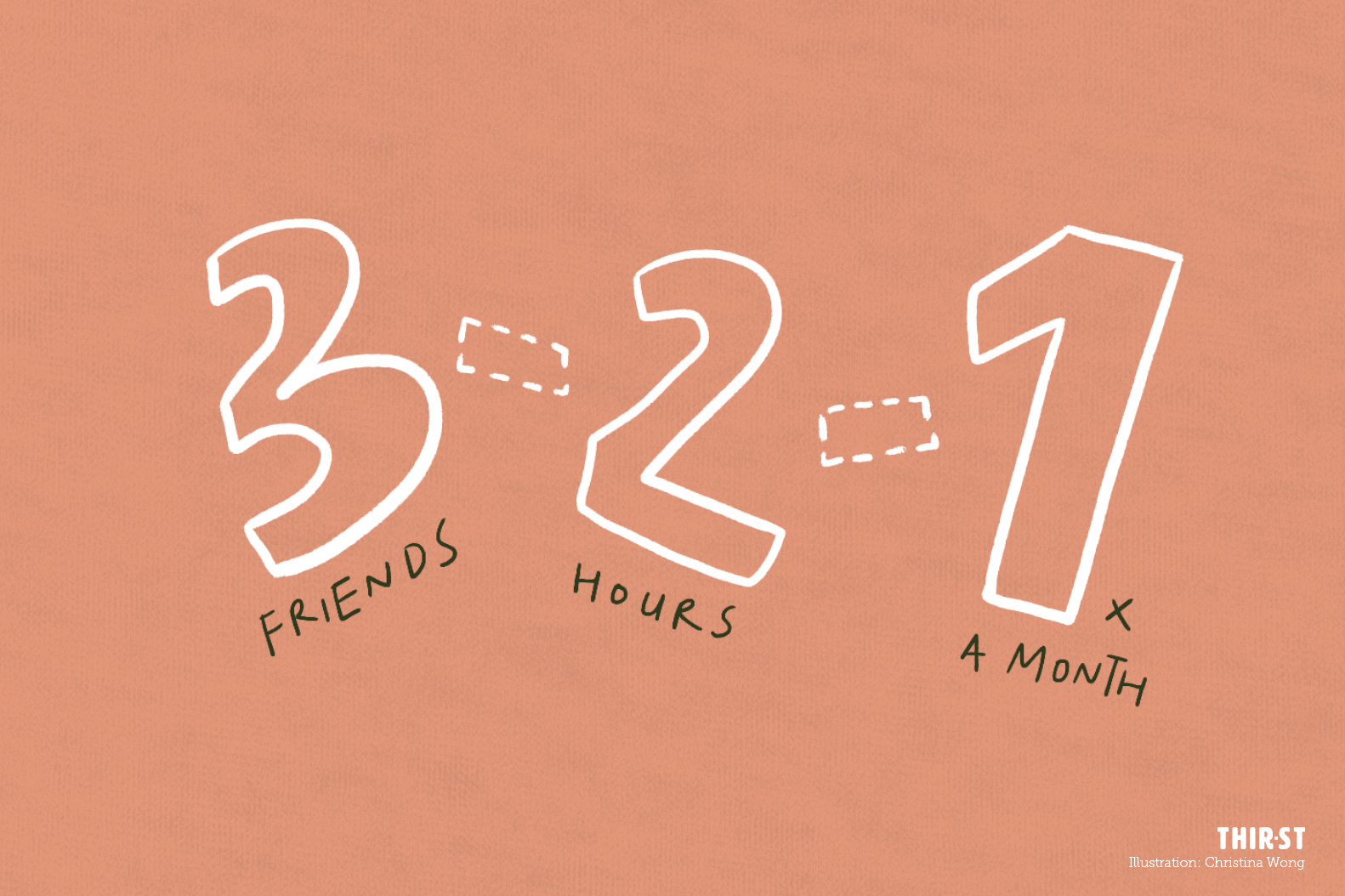After more than 20 years of growing up in church, I’ve discovered there’s an area of my faith I need to work on: The confession of sin to community.
Every week, we privately confess our sin in service and then recite a scripted communal confession. To be clear, the communal confession plays an important role in expressing our awareness of who we are before God and ensuring that we are justified by the blood of Jesus Christ (Ephesians 1:7).
But I didn’t think we did confession in smaller communities quite as well. You might be thinking, “What’s the big deal about confessing our sins in smaller faith communities?” That was also the question I had in mind as I read up about it. And I discovered something quite surprising.
Confessing to one another can take fellowship to the next level.

I had long felt distant from my church and community. I didn’t want others to find out about my personal life outside church. Having to hide my sin from my faith community led me to put up a front at church – a front that misrepresented who I really was.
“Well, at least I’m confessing my sins to God”, you may argue. But German martyr and theologian Dietrich Bonhoeffer challenges this thinking and makes an interesting observation:
“Why is it that it is often easier for us to confess our sins to God than to a brother? God is holy and sinless, He is a just judge of evil and the enemy of all disobedience. But a brother is as sinful as we are. He knows from his own experience the dark night of secret sin. Why should we not find it easier to go to a brother than to a holy God? But if we do, we must ask ourselves whether we have not often been deceiving ourselves with our confession of sin to God, whether we have not rather been confessing our sins to ourselves and also granting ourselves absolution. And is not the reason perhaps for our countless relapses and the feebleness of our Christian obedience to be found precisely in the fact that we are living on self-forgiveness and not a real forgiveness?”
Isn’t that true? I can think of many times where I muttered a haphazard confession to God before sleeping – as though His forgiveness was my right. If God is holy, should it not be of a greater concern what God thinks of our sin – rather than our Christian brothers and sisters? And yet, we often seem to be more fearful in confessing our sins to people than to God.
There may, of course, be legitimate reasons for why one would choose not to confess their sin to a particular brother – such as the fear of causing him or her to stumble in faith. But it’s also true that we often fear the judgment of people more than the judgment of God. After all, the unfortunate reality is that people are far less forgiving than God.
It is not confession that grants salvation. Jesus grants salvation, and we attain it by grace through faith
The way forward, according to Bonhoeffer, would be to understand how God works through communal confession of sin. It enables believers to journey together. Unconfessed sin isolates the individual from community precisely because it remains hidden to community.
The Christian who refuses to confess his sin to community may struggle to be transparent or accept help from his community. In confessing our sins to each other, pride is eroded and we are able to stand together, bear one another’s burdens and pray for each other (James 5:16).
POTENTIAL DANGERS
That’s not to say that confession within community is without danger. There are at least two dangers I can think of. The first danger involves those who are listening to confessions. The person to whom the sin is being confessed to must always remember that true forgiveness is found in the cross of Christ alone. It is never his or her duty to bestow forgiveness.
The role of the listener is to point the confessing sinner back to Christ for forgiveness. Therein lies the power of community. Not to act as though one is God, but rather to display the love of Christ (John 13:34-35) to the confessing sinner, assuring him that Christ died on the cross precisely for what has been confessed.
The second danger would be for those who are confessing. “For the well-being of their soul they must guard against ever making their confession into a work of piety,” says Bonhoeffer. Salvation is not based on confession or an intense faith, but the blood of Jesus. To be clear: It is not confession that grants salvation. Jesus grants salvation, and we attain it by grace through faith.
Confession follows after faith. Both confession and repentance must result from a faith that is quickened by the Holy Spirit.
FINDING COMMUNITY
How do I confess in smaller faith communities? Personally, I think a good place to start is in a small group of close friends. Tan Soo Inn, founder of Graceworks, has written a few books on spiritual friendship.
He advocates a 3-2-1 model which I find helpful: The idea is for a group of three friends to meet for two hours once a month.

While I’ve never had the opportunity to use the 3-2-1 model, I do have a close friend who I meet up regularly with. With this brother, I’m able to share life and confess sins. One thing that makes our friendship so tightly-knit is the fact that I can be transparent with him, sharing about my weaknesses and the times I fall into sin.
Confessing to each other reminds us both of the need for God’s grace in our lives, and of how we are not alone in this process of sanctification.
If you’ve never experienced communal confession, trying it for the first time may be awkward or even frightening. But if we accept that the Bible calls for this discipline (James 5:16), then we must consider the idea that the lack of confession in spiritual friendships hinders growth and maturity.
Confession within friendship has led me to view my fellow brothers and sisters as fellow sinners standing under the cross of Christ, living life together.
This article was first published on YMI.today, and is republished with permission.









